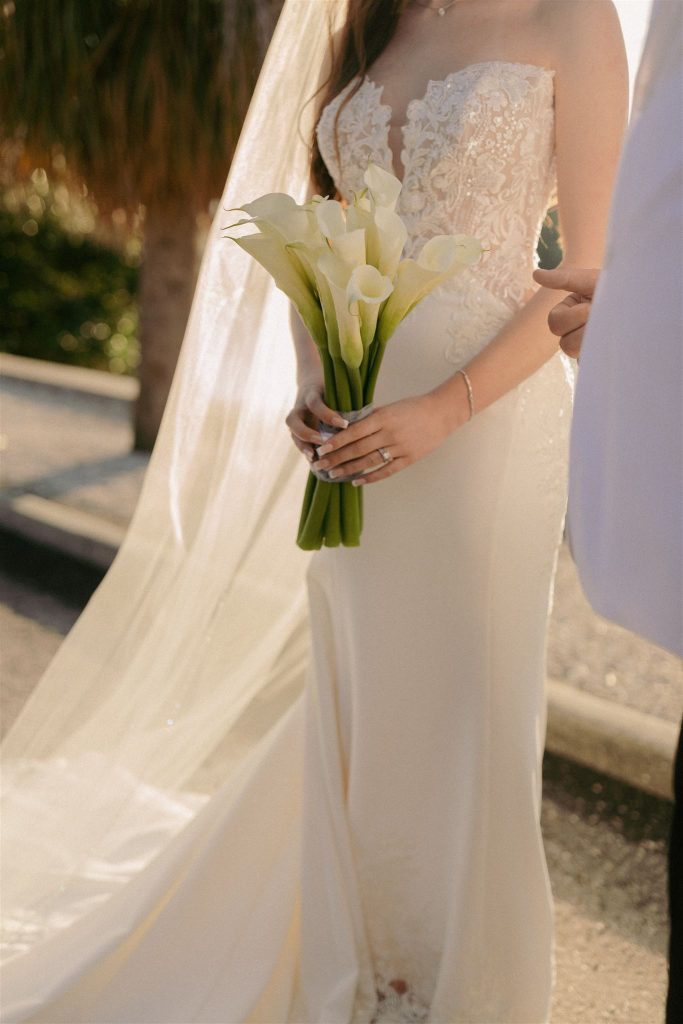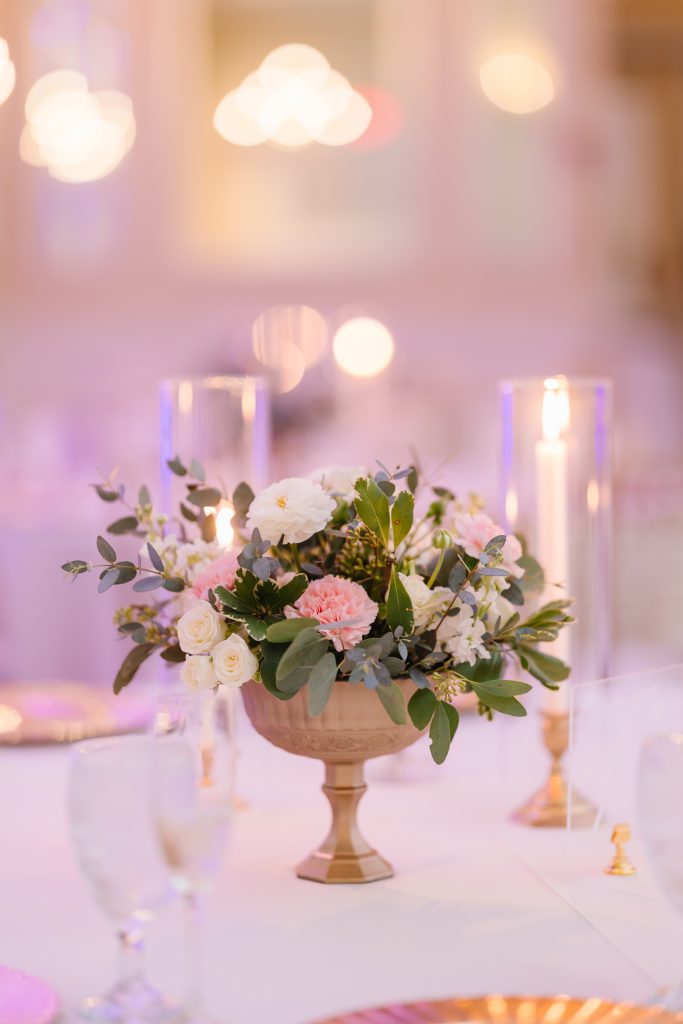In Full Bloom: Wedding Flowers
As couples start planning their dream wedding, one element often stands out as essential to the celebration: flowers. These delicate and vibrant blooms have played an important role in weddings throughout history, symbolizing love, fertility, and new beginnings. Flowers do more than just look pretty – let’s explore the rich history of weddings and the enduring significance of flowers in these joyous celebrations.

Weddings, as we know them today, are rooted in tradition and ritual, with origins dating back to ancient civilizations. In ancient Rome, brides carried herbs and spices, such as garlic and rosemary, to ward off evil spirits and ensure fertility. In ancient Greece, brides accessorized with wreaths of fragrant flowers, believing it would bring blessings from the gods and goddesses.
During the Middle Ages, weddings became grand affairs, marked by lavish ceremonies and elaborate floral arrangements. Flowers were not only used for decoration, but also held symbolic meanings. For example, the bride would carry a bouquet of herbs and flowers to mask any unpleasant odors and signify fidelity and devotion.
The Victorian era brought a golden age of romance and extravagance, where weddings became elaborate affairs filled with opulent decorations and lavish floral displays. Queen Victoria herself set the trend by incorporating fresh flowers, particularly roses, into her bridal ensemble, inspiring brides across the globe to follow suit.

In modern times, weddings have evolved to reflect the personal style and preferences of the couple, yet flowers remain a timeless and essential element of the celebration. From elegant bouquets to elaborate floral arches, flowers add beauty, fragrance, and a touch of romance to every wedding setting.
Flowers have the power to evoke feelings of joy, love, and happiness, making them the perfect adornment for such a joyous occasion. Each flower carries its own unique meaning, allowing couples to show their sentiments and emotions through carefully curated floral arrangements.
For example, roses symbolize love and passion, making them a popular choice for bridal bouquets and centerpieces. Meanwhile, lilies represent purity and devotion, making them ideal for religious ceremonies and altar decorations. By selecting flowers that resonate with their personal beliefs and values, couples can infuse their wedding with deeper meaning and significance.
Flowers have the ability to transform any venue into a magical and enchanting space, creating a sense of beauty and wonder that lingers in the memories of guests long after the celebration has ended. Whether lining the ceremony aisle, decorating the reception tables, or embellishing the wedding cake, flowers have the power to elevate the venue and create a truly unforgettable experience for all in attendance.
The history of weddings is tied to the timeless allure of flowers, from ancient rituals to modern-day celebrations. As couples embark on their journey of love and commitment, they continue to embrace the tradition of incorporating flowers into their wedding festivities. As you plan your dream wedding, remember to embrace the beauty and magic of flowers, for they are the blooms of love that will forever adorn your special day.